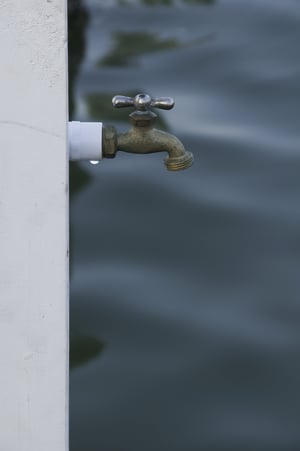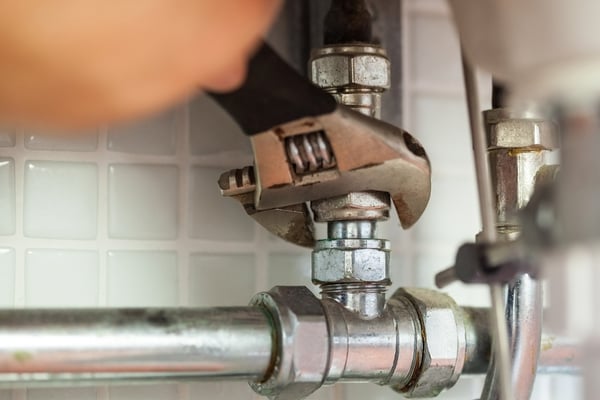The EPA reports that over 15 million U.S. households rely on private wells for their water. Well water is generally found in rural areas where a public water supply is not available. It is important that buyers looking at homes that depend on well water include a well inspection as part of their home inspection. Many people believe that as long as water looks clean and has no odor that it is uncontaminated. Unfortunately, that is not the case and well repairs can be costly making it imperative to have the water system tested by a professional.
Types of Wells
There are 3 main types of wells. Drilled, driven, and dug wells all rely on some type of pump to get the groundwater transported to the faucet. Most pumps run completely on electricity; meaning if the electricity goes out you can’t drink water, take a shower, or flush the toilet. Yuck! Having a backup generator is crucial if you live in an area where electrical outages regularly happen.

Testing
Most likely your realtor will suggest ordering a comprehensive water test as part of your home inspection process. Depending on the type of water test you are having done there will be different requirements on how the water is drained and the time of day testing needs to be administered.
There are many types of tests that can be done. The minimum testing will analyze for nitrate and a total coliform test. However, during a home inspection, it is recommended you have a more thorough assessment of water. These types of tests include analyzing the amount of radon, heavy metals, contaminants, lead, organic, and inorganic chemicals. The national average for testing is $400.
What Happens During the well Inspection?
An inspector will usually test the water system first by checking the water volume and pressure. This is when the water will be checked for bacteria, nitrate, lead, and other contaminants. The inspector will then determine if the well is properly constructed and compliant.
During the inspection, all plumbing equipment will be checked to identify how the water is getting in the home and where the water is coming from. Many homes that use well water also use a septic tank. In the case that there is a septic tank, the inspector will check the septic drain field (also referred to as leach fields or leach drains) to determine the distance it is from the well and the age of the drain field. A septic drain field should be a minimum of 100 feet from the well in order to protect the drinking water from potential contamination.
Pumps older than 25 years and pumps that have been poorly maintained will most likely need to be replaced. A new water pump can cost up to $4,000 with the national average coming in at about $1,500. This is one reason it is imperative you have the inspection before closing on the home.
Positive tests for heavy metals typically signal big issues concerning the groundwater and can be very difficult to treat. Heavy metals include some of the most common metals on Earth such as silver, tin, and copper. Because these metals are used in agriculture, living in a rural area it would not be surprising to see these metals in your water. It is important to treat the water as some metals can be extremely harmful to humans. Lead and copper can be seen in improperly treated groundwater and specifically in homes built previous to the 1980s when lead was still used in plumbing systems.

Virginia Private Well Regulation and Lenders
The state of Virginia Private Well Regulation does not require that a well inspection be completed in order to transfer a property title. However, keep in mind that many lenders will require water testing for a property transfer. Lenders require testing to be completed to make certain they are not authorizing a loan with a faulty water system. Lenders don’t require these tests to protect residents, they are protecting their investment in the event they are forced to repossess the property.
Conclusion
Buying a house is an exciting time! For buyers choosing a more rural lifestyle, the probability of having a well is high. It is important to be sure you have a water supply that is not inundated with harmful chemicals. Start your journey the best way by making sure your well is in good condition and your water is healthy.
Khalil El-Ghoul
Khalil El-Ghoul is a seasoned real estate broker actively helping sellers and buyers throughout Northern Virginia, DC, and Maryland. Known for his no-nonsense approach, Khalil combines expert market insight with honest, objective advice to help buyers and sellers navigate every type of market—from calm to chaotic. If you’re looking for clarity, strategy, and a trusted partner in real estate, he’s the one to call. 571-235-4821, khalil@glasshousere.com






